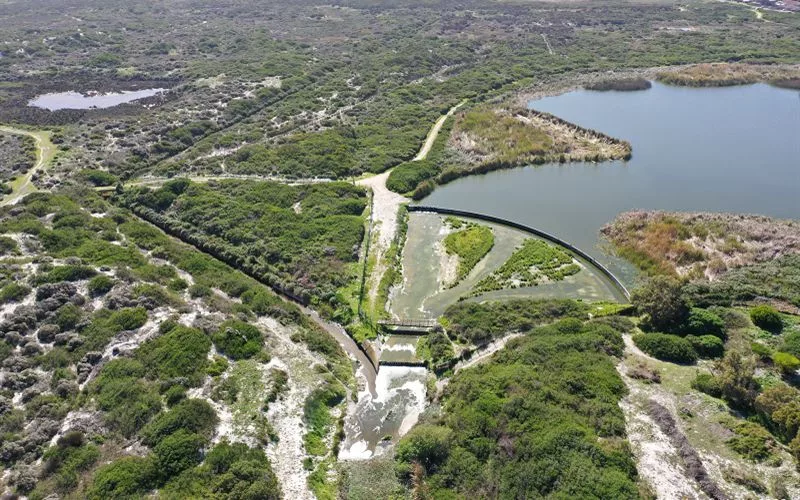Cape Town’s economic progress is on the rise, with Moody’s Investor Services upgrading the city’s credit rating outlook from stable to positive. The city plans to invest R39.5 billion in infrastructure over the next three years, with 75% of that budget going directly to low-income families. This investment is predicted to create nearly 130,000 construction-related jobs, building on Cape Town’s reputation for having the lowest unemployment rate in South Africa. The city also plans to invest R120 billion in infrastructure over the next ten years and is committed to tackling socio-economic disparities.
What is Cape Town’s economic progress?
Cape Town’s credit rating outlook has been upgraded from stable to positive by Moody’s Investor Services, reflecting the city’s robust economic health and bright future prospects. The city plans to invest R39.5 billion in infrastructure over the next three years, with 75% of that budget going directly to low-income families. Nearly 130,000 construction-related jobs are predicted to be created over the next three years, building on Cape Town’s reputation for having the lowest unemployment rate in South Africa. The city also plans to invest R120 billion in infrastructure over the next ten years.
The Wind of Change: Cape Town’s Economic Optimism
Cape Town is currently bathing in the radiance of an improved credit rating, a positive transition, applauded and acknowledged by the town’s Mayor, Geordin Hill-Lewis. A recent analysis by Moody’s Investor Services has upgraded Cape Town’s credit rating outlook from stable to positive, which is an enormous compliment that reflects Cape Town’s robust economic health and its bright future prospects.
The fact that Cape Town has secured such an upgrade is not a minor accomplishment. It portrays an image of a metropolis that has managed to sustain a strong revenue collection rate, which has led to persistently low debt levels. Moody’s points out that effective governance is instrumental in ensuring this financial solidity, equipping the city with the means to finance substantial infrastructure projects. The rating agency even predicts that Cape Town’s financial performance will intensify over the next 12 to 18 months, surpassing earlier estimates.
The City’s Future: Huge Investment and Job Creation
What can we expect from this flourishing city in the future? A massive investment of R39.5 billion in infrastructure over the coming three years, as detailed in its ‘Building For Jobs’ Budget. This step marks a first for a metropolitan municipality in South Africa, constituting the most substantial three-year infrastructure investment ever made.
The unique aspect of this plan is its inclusivity, as it envisages spending 75% of the 2024/25 infrastructure budget of R12 billion, or R9 billion, directly on low-income families. The ripple effect of these investments is expected to extend beyond infrastructure development to employment generation, with nearly 130,000 construction-related jobs predicted to be created over the three years. This strategic decision builds on Cape Town’s existing reputation for having the lowest unemployment rate in South Africa.
Mayor Hill-Lewis is naturally elated at these developments, interpreting them as confirmation of Cape Town’s position as a paragon of effective governance within the country. He maintains that this upgrade will enhance the city’s ability to finance its infrastructure investment track record, thereby reducing borrowing costs.
The Commitment to Socio-Economic Balance and Future Plans
In addition, the mayor underscores the city’s determination to tackle socio-economic disparities, asserting, “Our pro-poor infrastructure expenditure of R9bn outstrips the entire infrastructure budget of any other metro.” With Cape Town set to soon become South Africa’s most populous city, the mayor and his team are turning their attention to infrastructure projects in the fastest growing and most impoverished areas in an attempt to rectify the unjust legacy of the past.
Looking forward, the city plans to invest an estimated R120 billion in infrastructure over the next ten years. This will be funded via a blended financing model that will exploit the city’s robust balance sheet and pursue funding from national and international markets. This includes the recent green-lighting of R3.5 billion in infrastructure financing from Nedbank, $150 million from the International Finance Corporation (IFC), and €100 million for development financing from the Agence Francaise de Developpement (AFD) in April 2023.
The upcoming three years are set to bring exciting progress for Cape Town, with several significant infrastructure investment highlights on the horizon. These comprise R6.5 billion in upgrades to wastewater treatment works, new water works exceeding R1.5 billion in value, and notable improvements to the city’s public transport, electrical grid, roads, and informal settlements.
The Sign of Growth: More Than Just An Upgrade
Cape Town’s credit rating upgrade signifies more than just its commendable governance and fiscal discipline. It represents a signal of a city that is not just expanding but thriving, a city that is investing not just in infrastructure but also in its people. This is the narrative of a city that stands ready to face its future head-on, equipped with robust plans, strategic investments, and a commitment to inclusivity and growth for all.
What is the recent credit rating upgrade for Cape Town?
Moody’s Investor Services has upgraded Cape Town’s credit rating outlook from stable to positive, reflecting the city’s robust economic health and bright future prospects.
How much is Cape Town investing in infrastructure over the next three years?
Cape Town plans to invest R39.5 billion in infrastructure over the next three years, with 75% of that budget going directly to low-income families.
How many construction-related jobs are predicted to be created in Cape Town over the next three years?
Nearly 130,000 construction-related jobs are predicted to be created over the next three years, building on Cape Town’s reputation for having the lowest unemployment rate in South Africa.
What is Cape Town’s commitment to socio-economic balance?
Cape Town is committed to tackling socio-economic disparities and plans to invest an estimated R120 billion in infrastructure over the next ten years. The city is turning its attention to infrastructure projects in the fastest growing and most impoverished areas in an attempt to rectify the unjust legacy of the past.
What type of financing is Cape Town using for its infrastructure investments?
Cape Town’s infrastructure investments will be funded via a blended financing model that will exploit the city’s robust balance sheet and pursue funding from national and international markets.
What can we expect from Cape Town in the future?
Cape Town is set to bring exciting progress over the next three years, with several significant infrastructure investment highlights on the horizon. These include upgrades to wastewater treatment works and electrical grid, new water works, and notable improvements to the city’s public transport, roads, and informal settlements. The city also plans to invest an estimated R120 billion in infrastructure over the next ten years.












